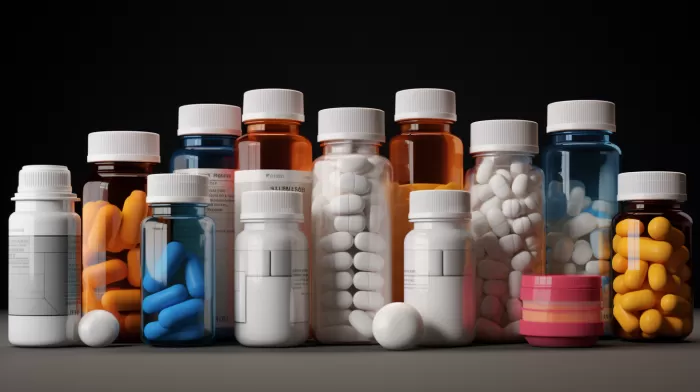Erectile dysfunction (ED) is something that men may experience more frequently as they age. One surprising factor contributing to this issue? The number of medications you are taking. A study conducted by researchers at Kaiser Permanente in California and published in the British Journal of Urology International found a direct correlation between the number of medications a man takes and his chances of developing ED.
The Link Between Medications and ED
The study followed over 37,000 men between the ages of 46 and 69, revealing that the more prescriptions a person accumulates, the higher their risk of ED. Various factors, including being overweight, having diabetes, suffering from depression, smoking, and having high cholesterol and blood pressure, were also shown to increase the chances of developing ED.
The study displayed the following risk percentages for men taking different numbers of prescription drugs:
- 1 or 2 medications: 16% chance of ED
- 3 to 5 medications: 20% chance of ED
- 6 to 9 medications: 25% chance of ED
- Over 9 medications: 30% chance of ED
Notably, the research found that older men generally take more medications, with over 50% of men in their fifties and more than two-thirds of those in their sixties taking three or more prescription drugs. 25% of all the men included in the study took 10 or more medications.
Medication Interactions and ED
Though the study did not determine exactly why taking multiple medications increased the likelihood of ED, Dr. Diana C. Londoño, a urologist at Kaiser Permanente Los Angeles Medical Center, suggests that interactions between medications could play a role.
If you are currently taking several medications, it is a good idea to consult with your doctor about whether all of these medicines are necessary. Inquire about any potential drug interactions your doctor may have overlooked, and consider natural alternatives to address your health concerns.
Natural Remedies for ED
If you’re experiencing ED and believe it may be due to your medication, talking to your doctor is the first step. Together, you can determine which medications are essential and which could potentially be removed or replaced with natural alternatives.
In addition to discussing your medications, consider implementing these natural approaches to help reduce the effects of ED:
1. Maintain a balanced diet: Eating a healthy, well-rounded diet can help improve blood flow and increase your energy levels, which is essential for a healthy sex life. A diet rich in fruits, vegetables, whole grains, and lean proteins can help support overall health.
2. Exercise regularly: Regular exercise can help improve blood flow, boost stamina, and increase overall health. Aim for at least 30 minutes of moderate physical activity each day, such as brisk walking, swimming, or jogging.
3. Manage stress: Stress can have a significant impact on sexual performance. Consider incorporating stress-management techniques like meditation, deep-breathing exercises, or yoga into your daily routine.
4. Prioritize sleep: Getting enough sleep is crucial for optimal sexual health. Aim for seven to nine hours of sleep each night to ensure you are well-rested and ready for intimacy.
5. Reduce alcohol consumption: Excessive alcohol use can negatively affect sexual performance. If you choose to drink, do so in moderation: one drink per day for women and up to two drinks per day for men.
6. Quit smoking: Smoking can damage blood vessels and decrease blood flow, both of which can contribute to ED. Quitting smoking can help improve your overall health and decrease your chances of developing ED.
As you work with your doctor to evaluate your medications and consider natural alternatives, keep in mind that addressing the root causes of your health issues is the most effective way to reduce the risk of ED. By focusing on a healthy lifestyle, managing stress, and closely examining your medications, you can improve your overall health and minimize the impact of erectile dysfunction.



![Boost Your Bedroom Game: Eat These Veggies for Better Sexual Health [INFOGRAPHIC]](https://naturalhealthreserve.com/wp-content/uploads/2024/01/best-vegetables-sexual-health-infographic-300x168.webp)